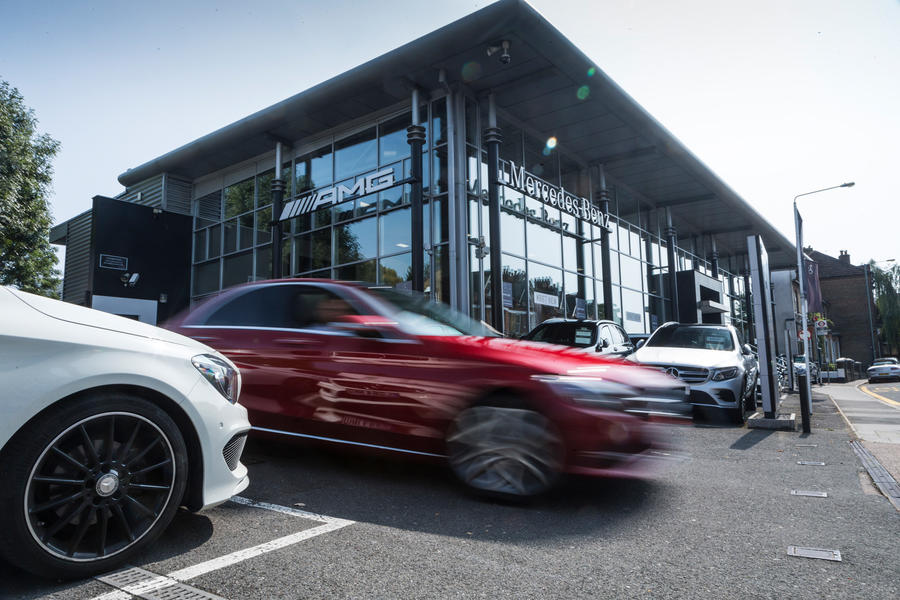Backlog of car repossessions is set to combine with falling demand to reduce values
The UK’s near-nine-month ban on car repossessions is set to be lifted at the end of January, sparking an increase in the supply of used cars and thus a fall in values in the first quarter of 2021.
Finance companies haven’t been allowed to repossess vehicles since 27 April, when the Financial Conduct Authority (FCA) introduced an effective ban to protect people affected by the coronavirus pandemic.
That ended on 31 October, but an updated version was introduced on 4 November in light of England’s month-long second lockdown, so repossessions now can’t take place until 31 January. However, while the entire repossession process was forbidden during the initial period, only the final act of recovering the car is now prohibited, allowing finance companies to ready collections during the current ban.
The ban has created “a six-month backlog of repossession cases,” according to Adrian Dally, the head of motor finance at the Finance and Leasing Association (FLA), predominantly affecting cars on typical PCP finance or similar packages.
Further repossessions – not part of the backlog – are expected after the ban lifts, because the economy is predicted to worsen, and this has led to concerns about oversupply and a potential drop in used car values.
“You’ve potentially got [more than] half a year’s worth of [repossessed] vehicles coming onto the market,” said Dally. “That’s on top of others, so there will be an effect on used car prices, because you’re going to have oversupply.”
He said that the vehicles will “trickle” onto the market (which bodes better for prices than an instantaneous swell) during the first quarter of 2021.
“Most car finance providers have had between 10% and 15% of their customers requiring forbearance at some point,” Dally added. “The majority of those are now back to normal payments, which is good, but possibly up to 10% of that 10-15% may end up terminating at some point. So that’s the kind of scale of it.”

Remarketing specialists acknowledge the issue but generally don’t believe it will negatively affect used-car values. Martin Potter, the managing director of car auction group Aston Barclay, said: “There will definitely be some extra volume, but I’m not concerned about what it does in the remarketing arena, because generally that sort of termination stock is often right in the sweet spot of exactly what everybody wants.
“They will probably be around that £7000-£8000 mark, very often still serviced and with one owner, so actually, if we do get some of that stock, I think it will be snapped up.”
An increase in repossessions is predicted to be more of a logistical issue for the remarketing industry. Social distancing measures have rendered the process of moving vehicles more laborious, while finance companies voiced concerns about storage capacity ahead of the change to the FCA’s guidelines.
“As far as I’m aware, the industry is preparing for quite a significant increase in the volume of vehicles coming back from the finance sector,” said Rupert Pontin, the director of insight at analysis firm Cazana. “The logistics guys have been asked by customers to please secure extra storage space.”
Potter agreed: “We’ve definitely had a number of our finance-house customers ask about what we can cope with if the volume does increase dramatically, so I think some of them are expecting there to be an influx.”
He added that consumer default rates are allegedly better than expected, saying: “Most of the finance companies I’ve spoken to have said that, of the people who took payment holidays, a percentage in the very high-90s have returned and continued to pay.”
Broader used-car values began to fall in October. Cap HPI reported a 2.1% reduction in prices through the month. Three-year-old city cars experienced the biggest proportionate drop, at 2.9% (circa £150) and equivalent large SUVs the lowest, at 0.5% (also £150).
However, it’s not unusual for the used car market to soften towards the end of the year, while sellers reported exceptionally strong prices in the months following the UK’s first lockdown.

Potter said the market was up by around 7% year on year, so a wider reduction in values, not accounting for repossessions, was expected.
“The market appears to now be undergoing some realignment,” said Cap HPI’s head of valuations, Derren Martin. “Values tend to drop in the final quarter of the year and supply levels usually increase. We do appear to be experiencing that drop-off in trade demand, but this year it’s exacerbated by economic uncertainty, high prices and reasonable predictions that the consumer appetite for used cars that has driven up prices can’t last forever.”
Pontin added: “Many of the remarketing operations we work with are reporting more cars available for sale, resulting in stock beginning to build at defleet centres and auction sites, while the latter are reporting lower conversion rates during online sales.”
The FLA’s advice for anyone struggling to meet their car finance payments is to contact their lender, which will be obliged to offer “tailored support”, such as payment deferrals or reductions before it resorts to repossession.
Jack Carfrae
READ MORE
Inside the industry: Car sales and the Covid effect
Source: Autocar
